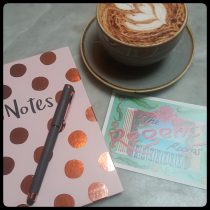Practical advice on writing with impact for audio from Simon Moorhead, producer at TBC Audio, a Brighton Based production company specializing in audio the
Practical advice on writing with impact for audio from Simon Moorhead, producer at TBC Audio, a Brighton based production company specializing in audio theatre.
What approach to writing should writers take when undertaking writing for Audio?
I think the first thing to say is listen to audio. That is obvious but I’m not sure how many people really explore the medium. Radio 4 – where most of the UK output comes from has a demographic that puts it’s listening audience to be around 55+. Outside of Radio 4, there are companies like Big Finish who specialize in fantasy fiction based around successful TV shows such as Doctor Who. They are very popular with a large genre market. Then there are podcasts such as We’re Alive, Serial and Welcome to Night Vale. We’re Alive has been downloaded around 68 million times and is probably as far away from The Archers as you can get. The newest player on the block is Audible. If you have a subscription you can now access the Audible “Channels”, which is free short form content crossing many genres.
One of the phrases being bandied about at present is audio movies, or widescreen audio where producers add sound design to create a filmic quality to the drama. Yes, this does bring production values to a story, but audio drama lives and dies by the quality of the writing.
However, there aren’t very many stories that can be told on film that can’t be told as an audio production. But in reverse there are huge epic stories that can be told in audio that simply could not be told on film because of the sheer production expense.
Following on can you do anything film can do and more on a low budget audio production?
The cost for creating an epic landscape such as ‘Star Wars’ in audio, is the same as telling a story with a few characters in a single room.
Should writers take risks with storytelling, characters and dialogue?
Absolutely. My first suggestion is to work out what the story is that you want to tell.
We have all grown up in a schedule specific workplace – a story is 60 mins long, because that is the time slot it fits in.
Filmmakers often make short films as ‘calling cards’, or because that is all they can afford to make. In my view a short film should be a story that can only be told in that restricted time frame. 20-30 mins is a great space to tell a story. Like many people, I get frustrated if I invest 6hrs in a story, only to be delivered a lame ending. But we are all hooked by the current trend in American TV drama where a story unfolds over several seasons so a story arc could have a duration of 73hrs or more.
Audio drama, more than with other mediums, requires strong characters and requires grabbing the attention of the audience immediately and then keeping the attention.
On the other side of the coin, dialogue in audio drama needs to be lean. Every word has to have a reason for being there. Through your dialogue the characters come alive as individuals. If the dialogue is strong then everything else such as the sound design follows.
Can you include exotic locations, extreme situations and very physical
scenes [murderous fight scenes, love scenes] etc.
Sound design and physical performance allows the production team to paint any picture required by the script. If you have a big crowd scene this can be achieved with a cast of six, by recording multiple tracks and layering the sound.
You are not restricted to recording in the studio either. Recently a very successful play was recorded inside a car, parked in the layby of a busy road.
Does the writer need to think about the logistics of recording?
This is very much dependent on the type of production you’re writing for. With a cast of six, if each actor provided the voices for two characters you immediately have a cast of twelve.
What length should scenes be?
Again this is dependent on the type of story you are telling. A few writers can get away with telling a story with two characters in one room for 40 mins. However, it is difficult for actors to keep up the energy and the peaks and troughs of a scene that is written over a number of pages. Short scenes with multiple characters give stories an energy even if adapting a classic. You can have very very short scenes; a one liner, a bit of sound only.
Secrets of formatting
1). Ensure the scene starts at the top of the page.
2). Don’t run on one character’s dialogue over two pages [avoids page rustling and the
actor breaking the flow to turn over].
3). Number the lines of dialogue – this makes it easy to do retakes.
Finally …
Keep the story moving on, make it a journey but most important of all engage the audience.
Simon Moorhead
www.tbc.audio
